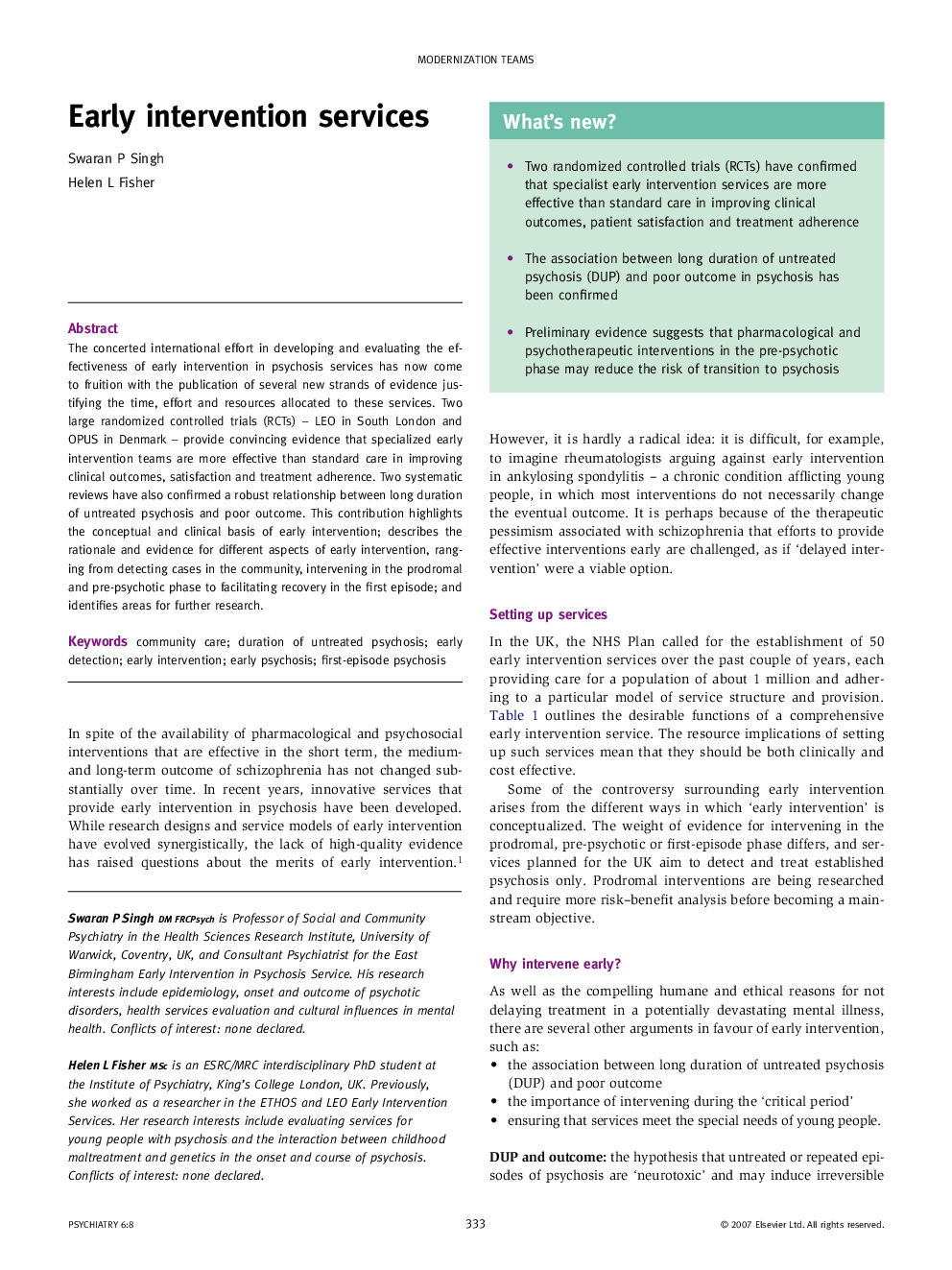| Article ID | Journal | Published Year | Pages | File Type |
|---|---|---|---|---|
| 4190145 | Psychiatry | 2007 | 6 Pages |
Abstract
The concerted international effort in developing and evaluating the effectiveness of early intervention in psychosis services has now come to fruition with the publication of several new strands of evidence justifying the time, effort and resources allocated to these services. Two large randomized controlled trials (RCTs) - LEO in South London and OPUS in Denmark - provide convincing evidence that specialized early intervention teams are more effective than standard care in improving clinical outcomes, satisfaction and treatment adherence. Two systematic reviews have also confirmed a robust relationship between long duration of untreated psychosis and poor outcome. This contribution highlights the conceptual and clinical basis of early intervention; describes the rationale and evidence for different aspects of early intervention, ranging from detecting cases in the community, intervening in the prodromal and pre-psychotic phase to facilitating recovery in the first episode; and identifies areas for further research.
Keywords
Related Topics
Health Sciences
Medicine and Dentistry
Psychiatry and Mental Health
Authors
Swaran P. Singh, Helen L. Fisher,
